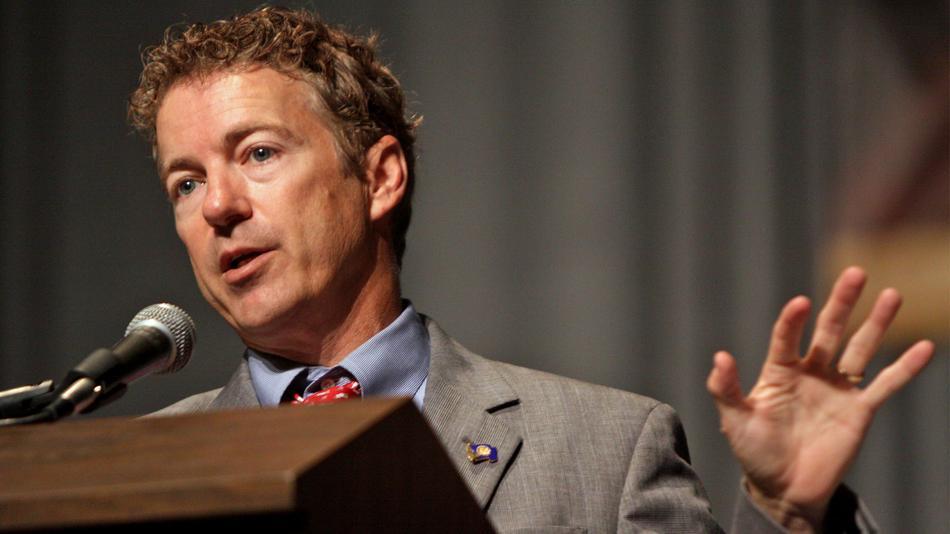“Daisy” All Over Again
by Josh Guckert
Over the last 24 hours, there has been a free-for-all in attacks on Sen. Rand Paul (R-KY) and his policy stance on vaccines. Such is the life of a 2016 presidential front-runner. However, we should always question what we hear in the news, and as is so often (unfortunately) the case, a majority of the accusations levied against Paul simply do not pass muster.
In the CNBC interview which has stirred the present controversy, anchor Kelly Evans sets the tone by not asking an objective question of Senator Paul, but rather condescendingly asking if he “really” thinks most vaccines should be voluntary. In that one sentence, Evans shows her lack of desire to have an open conversation on the topic and further exhibits her greater interest in catching Paul in a “gotcha” moment. She further asserts her arrogance, stating that perhaps Senator Paul simply is “not aware” that Disney theme parks are being forced to close down because of cases of measles.
Senator Paul retains his calm throughout the interview, never raising his voice. He asserts his unqualified support for vaccines, but questions the desirability of enforcing a government mandate in such an arena. As becomes problematic with many modern liberal thinkers, Paul’s libertarian-minded stance on this issue shows that there is a distinct difference between an individual endorsement and a government mandate.
As the interview continued on, Evans, on more than one occasion rudely interrupted Paul and attempted to make loaded statements about his stances under the guise of questioning. As the interview came to a close, Paul was likely just happy to be finished with such attempted entrapment. However, since the interview, numerous media headlines have falsely reported that Paul believes that vaccines “cause mental disorders,” or that he is against vaccinations altogether.
Unfortunately for Paul, this is not the first time that he has had to deal with such a slanted distortion of his pro-liberty stances. During his race for the Senate in 2010, another NBC affiliate, MSNBC, attempted to claim that Paul was against the 1964 Civil Rights Act due to his opposition to Title II of the Act, which places restrictions on private businesses.
More broadly, large media corporations have historically taken pleasure in portraying purveyors of liberty as not mentally stable and offering too simplistic of solutions to govern. Such was the case in arguably the first “modern” presidential campaign in 1964. After the assassination of President John F. Kennedy late in 1963, President Lyndon Johnson was all but guaranteed to win an additional term.
However, that was not enough for Johnson or the media. Johnson’s campaign began running smears against his opponent Barry Goldwater, the most infamous of which was the “Daisy” ad, which inferred that Goldwater was going to start a nuclear holocaust (ironically, “peace candidate” Johnson would significantly escalate the Vietnam War following his election victory). On top of that, Fact Magazine printed an article during the campaign which used evaluations by psychiatrists to portray Goldwater as mentally unfit to serve as President. Goldwater later won against the magazine in a libel case.
Senator Paul’s father and former Congressman Ron Paul (R-TX) faced much of the same unfair treatment in his bid for the presidency in 2012. One noteworthy moment was during a debate when FOX News anchor Chris Wallace disbelievingly asked if the elder Paul thought that heroin and prostitution were “an exercise of liberty.”
If we as libertarians wish to endure, thrive and succeed in today’s political climate, we must stand up, bond together and fight for our ideals and principles. Neither conservatives nor liberals will come to our defense if it is to no political expedience to them. We should accordingly treat attacks on any of our pro-liberty brethren as an attack on each of us and all of those values which we hold dear.
[divider]about the author[/divider]
Josh Guckert is a 23-year-old law student at the University of Pittsburgh. He graduated cum laude from the University of Pittsburgh in 2013 and was born and raised in the Pittsburgh area. He is a 2013 graduate of Cato University, hosted by the Cato Institute, and was first drawn to the ideas of liberty by reading 1984, Brave New World and The Conscience of a Conservative.





1 comment